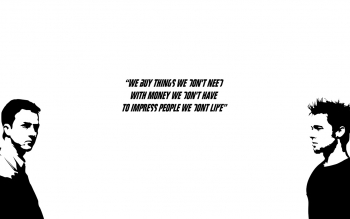It’s time we were honest with ourselves about online persuasion, don’t you think? As every day passes, the online environment becomes more and more a part of our daily lives. With this being the case, the search for the best way to persuade us to do this or that, or buy this brand or another, or to use one service or another, has become the holy grail for the marketing industry.
Chinwag Psyche 2014 Conference, http://2014.chinwagpsych.com/ Thursday May 15th, at the Museum of London.
Fast passing are the days of spatter-gun advertising, a world in which we sit by passively while marketers hurl images at us that may or may not be relevant to our lives. More and more we get messages from the products and services that we are more likely to want, and are hence more likely to buy. Data mining all our personal information we willingly throw up on Twitter and Facebook is a big help to these marketers, but still, the hunt goes on to increase the grease on that persuasion engine that will get you and me to spend our hard earned currencies on their products and services.
As outlined by Charles Duhigg in his book The Power Of Habit, we find that companies such as Target in the US are developing the capacity to mine data to such a degree that they can identify a pregnant woman by her purchasing habits months before she even gives birth (this is important because she’ll soon be purchasing for two). Facebook can predict, ahead of time, when you are likely to change your status from single to being in a relationship. That old adage that if you’re not paying for the service you are the product seems to hold a lot of water today. We are all products simply by the nature of our being online. So where does persuasion come along? This quote from the film Fight Club gives us a partial answer:
“We buy things we don’t need with money we don’t have to impress people we don’t like.”
In Fight Club we find a protagonist who is literally psychologically split down the middle trying to persuade himself that he is either one thing or another — is he, essentially, the way of Edward Norton or Tyler Durden? We all have this split (and many more in fact) just not necessarily so clearly marked as they are in the film. Sure, the film is about Capitalism, but it’s also very much about identity in relation to Capitalism, and how we persuade ourselves and others about who and what we are.
The way in which we engage across online social networks engages a particular part of the personality – most notably the outward facing part of our egos – that parts of ourselves that we are most willing to display to others. The ego is a highly managed (sometimes manufactured) part of the self, and is composed largely of how we’d like to see ourselves, and how we’d like others to see us.
The more our identities are hoicked up online, the more we persuade ourselves and others that we are our egos.
The catch is, however, that we are much more than our egos. In fact (as Freud so clearly taught us) our selves are actually a multiple collection of parts that are generally in conflict with each other.
If the marketers get it right, they think they’ll be able to persuade us to do all sorts of things – the thing is, they will never find the holy grail if they continue to be hoodwinked (as most of us constantly are) that we are dealing with rational egos. For example, if you are trying to sell a gym membership, an insurance policy, or some ice-cream — you will be appealing to very different aspects of the psyche: the ego is just the middleman.
While this may be frustrating to marketers, for me (who is not a consumer psychologist) it is rather heartening. Human beings are complex and though there are a variety of well studied techniques that are likely to get someone to buy something rather than something else, our human complexity continues to perplex those searching for that holy grail.
We evade the holy grail because each of us are not unitary, but a collection of different desires – what we see through our social networking profiles only project a limited idea of who we actually are.
Marketers will continue to try and persuade us, but the biggest persuaders are actually ourselves. We believe ourselves to be green, or original, or ethical, or fashionable, or counter-cultural, feminist, anti-capitalist, or carnivorous; we believe ourselves to be alpha male or queer or studiously uninvolved, eccentric, or intellectual. These things, all of them, are identity constructs that are cobbled together by our weary egos.
Weary as they are they will redouble their efforts to persuade ourselves of who we are, and the force of the ego’s persuasion to tell us what service, product, or music to buy is like a tsunami compared to the lapping wake of a passing rowboat where a marketer tries to sell you something your ego, id, or superego is not at all interested in.
Not persuaded by my point of view? Hear more from me, and from others on this and other related issues on psychology and technology at the
Chinwag Psyche 2014 Conference,http://2014.chinwagpsych.com/ Thursday May 15th, at the Museum of London.

